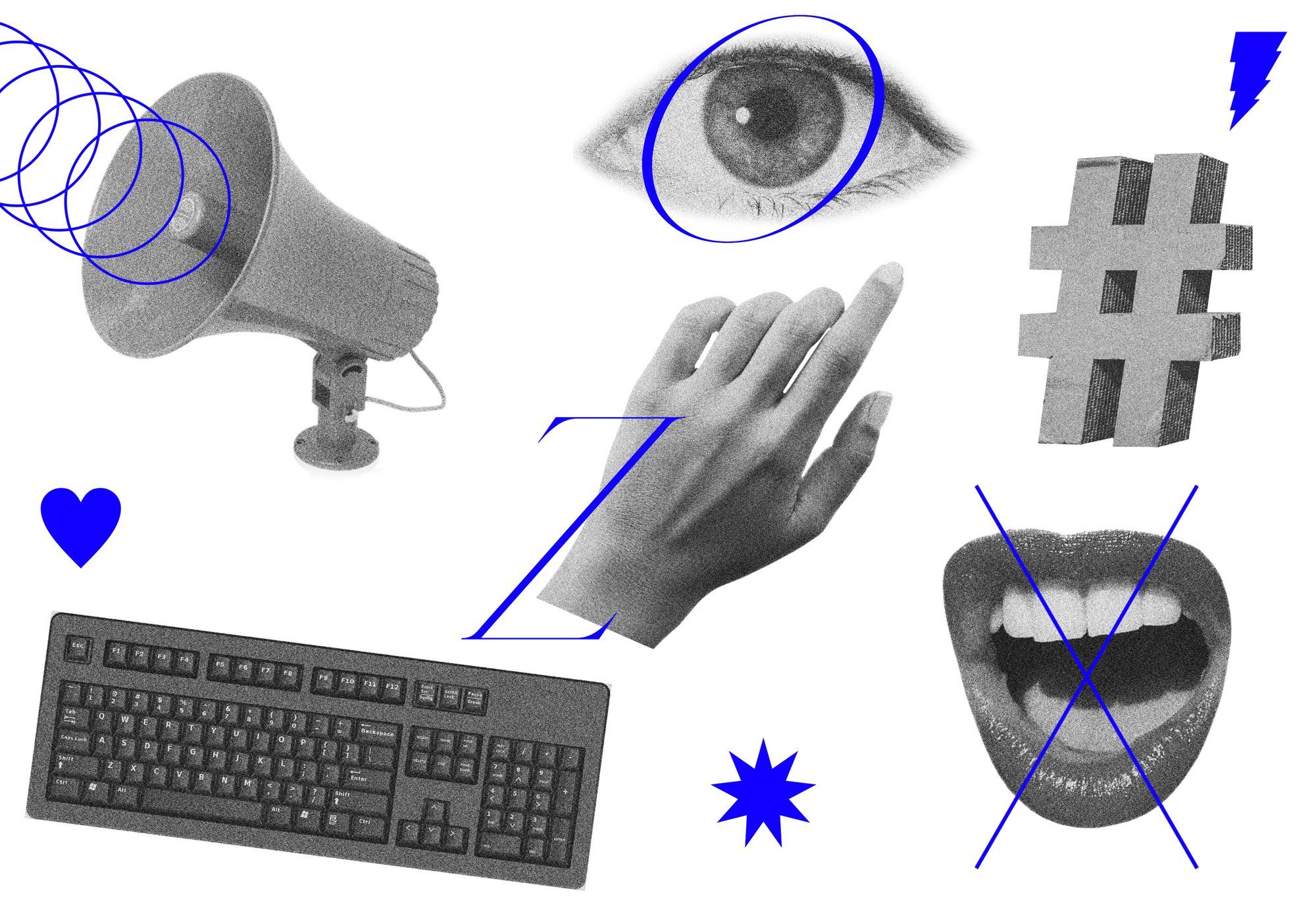Older generations have always criticized young people: they are lazy, spoiled, and nowadays also hypersensitive and always on their phones. Still, the so-called „Generation Z” (today’s teenagers and young adults in their early twenties) is unique: they were the first to grow up in the Internet age, and they already experienced several crises at the dawn of their adulthood.
Gen Zers born between 1997 and 2012, so the oldest „Gen Z person” turns 25 this year, while the youngest is just ten. Thus, this cohort covers a broad range with significant differences between its older and younger members regarding socialization and experiences. Still, experts say they can be lumped together because of some characteristics. But what makes today's youth so unique?
The Internet age is definitely one of the unique features. The unifying (but also divisive) power of the Internet has been an integral part of the generation’s life from the very beginning; therefore, they are also referred to as iGeneration or the Internet Generation. Social media emerged around 2004; Myspace had its peak years then, and the later record-breaking Facebook was also founded that year. The oldest members of Gen Z were just seven years old that year, and many of them were not even born yet. This inevitably resulted in the generation of Internet addicts, with a little exaggeration. According to statistics, around 25% of Gen Zers feel uncomfortable after only one hour without internet access. Around half of this age group use the web to keep in touch with peers on a daily basis, and 60% consider online presence a determining factor of dating. Of course, the issue is not black and white: while excessive internet use leads to addiction and anxiety, and social media can even lead to mental illnesses, they still have their benefits. No generation had access to as much information as the iGeneration, but the question is how they can use it.

If we want to generalize, we can say that we talk about an „enlightened” generation due to a kind of necessity: The climate catastrophe, for instance, relentlessly confronts the world with the consequences of irresponsible behavior that does not respect the finite nature of the planet's resourcees. Today’s youth will suffer the most from the unsustainable behavior of individuals, corporations, and governments in the coming 50-60 years. This cohort is particularly interested in environmental activism, together with the Millennials, the previous generation (people born between 1981 and 1996). But the older generations generally do not care that much about climate change. A Mastercard study revealed that 40% of Central and Eastern European people aged between 18 and 24 say that the future of the planet is one of their most common concerns; 45% of them donate to various foundations and NGOs (although not strictly for environmental protection), and 34% get involved in volunteering. Even extreme forms of youth activism are started to emerge: for example, in October 2022, climate activists aged 20-21 threw tomato soup on a Vincent van Gogh painting in London to raise awareness about the livelihood crisis and the destruction of the planet. We must also mention 19-year-old Greta Thunberg, a world-renowned icon of the climate fight: the famous Gen Z activist can embarrass even the most influential decision-makers. So Gen Zers are not idle when something is at stake that they deem important, and their priorities seem correct. They tend to be empathetic and socially sensitive, maybe because at that age when the older generations had only attended kids’ birthday parties, they were already reading about political and social challenges on the Internet. Moreover, their activism is fueled by deep-seated anger. Generation Z is angry because humanity slowly destroys the whole planet, because the global elite has more money than many developing countries together and because instead of aiming for equality and social solidarity, the gaps between the rich and the poor are becoming increasingly wider.

So, Gen Zers are, in general, responsible citizens. But do they even have another option in 2022 when the future looks increasingly apocalyptic? They are also responsible regarding their work. The Mastercard study’s main focus was the work habits of young people. The researchers examined people aged 18-24 from eleven Central and Eastern European countries (CEE), including Czechia, Hungary, Poland, Romania, and Ukraine. Although the survey was conducted in 2021, many participants already feared future financial uncertainties to a large extent. In 2022 we can say that their fears have not been at all unfounded. In any case, the young people of the 2020s are forced to act, and they are ready to fight the emerging crises: 32% of the CEE youth have a full-time job, and only 30% rely primarily on their parents in financial terms. Hungarian Gen Zers even outperform the CEE average: 40% of the older members of the cohort work full-time, and only 22% get most of their money from their parents. In 2021, the average Gen Z salary in the region was around €450 (approximately HUF 186 000 with the current unfavorable HUF/EUR exchange rate and roughly HUF 158 000 in 2021 when the study was made). Part-time workers’ salaries were included in this average, but we can still conclude that the young generation is definitely not overpaid.
Regarding Gen Z’s priorities, the study revealed that family is the most important for two-thirds of them, followed by health, friends, and love life. Contrary to the common stereotypes that young people now prefer to communicate online rather than face-to-face, most people aged 18-24 in the region believe nothing can replace face-to-face conversations. Moreover, 64% of CEE youth like to spend their free time with others rather than alone. Their main concerns include the skyrocketing cost of living, employment, and housing price, while their main goal is to find a job immediately after finishing their studies, and they want to earn between two and three thousand euros in the future. But why is Gen Z frequently criticized if they are indeed a conscious, ambitious generation with an appropriate value system? Is it true that it harmed the young generation that conscription was abolished? Or are older generations just embarrassed and jealous that the new generation is more self-conscious and louder than they were?

Claiming that many people are critical of young people is also a generalization, as many older people rather tend to feel sorry for young people because of the challenges the future holds. Still, we often hear the older generations saying that „back in my day...” But this attitude is probably eternal, as older people have always said these words to the youth. The new generations have always been different to some extent, and the current one is no exception. Besides the aforementioned Internet addiction, many people say that hypersensitivity is another characteristic of today’s youth. Gen Zers are accused of advocating radical political correctness (PC) that is actually harmful by killing debates, humor, and in the end, freedom of expression and speech. This stigma is, of course, more widespread in the United States than, for example, in Central and Eastern Europe. In the US, the overly sensitive and easily offended (young) people are called „snowflakes.” By the way, the term „snowflake” has already been used in the American film Fight Club, although in a slightly different context: Brad Pitt, who played one of the main characters, claimed that it is pointless to think that anyone is a „unique snowflake.” So, Gen Z is accused of oversensitivity, excessive individualism, or even egocentrism. But it remains a question whether these characteristics are indeed big problems or whether they are needed for the world’s progress. The answer, of course, largely depends on the degree of „snowflakeness.”

Gen Zers (self-)awareness is diverse and extensive: they are also pioneers in the mental health field as they want to eliminate the stigma surrounding it. The COVID-19 pandemic and its consequences have probably played a crucial role in this increased sensitivity: Gen Zers were forced into complete isolation at an intrinsically unstable time of their lives, and they had to face various forms of insecurity simultaneously. Therefore, this generation is particularly affected by mental health issues from many angles: crisis follows crisis as they grow up, and they are the first to experience unregulated exposure to the online world, which is certainly not a lucky combination if one’s goal is a balanced and happy life. According to a US study, 42% of Gen Zers have a diagnosed mental health condition, and 57% of those struggling with mental health issues are on medication. And these high figures are not only valid for the US. Still, mental health issues are framed slightly differently in Central and Eastern Europe. Although the CEE youth increasingly see these issues as real problems, the older generations tend to trivialize them. There is still only a very low willingness in the region to adequately address these questions on the societal level, and the options for asking for and giving help are quite limited. But this is no surprise as the older generations in Central and Eastern Europe experienced a very turbulent history, full of struggles and suffering. Thus, they still see self-care as a luxury. Of course, this might change as primarily those can shape the world who are in their twenties, and Gen Zers already play a significant role in leading us to a more sustainable and liveable future, understanding it not just ecologically.
Graphics: Réka Pisla

Musical benches bring play to public spaces

Merch collection made from the waste left on the Himalayas










